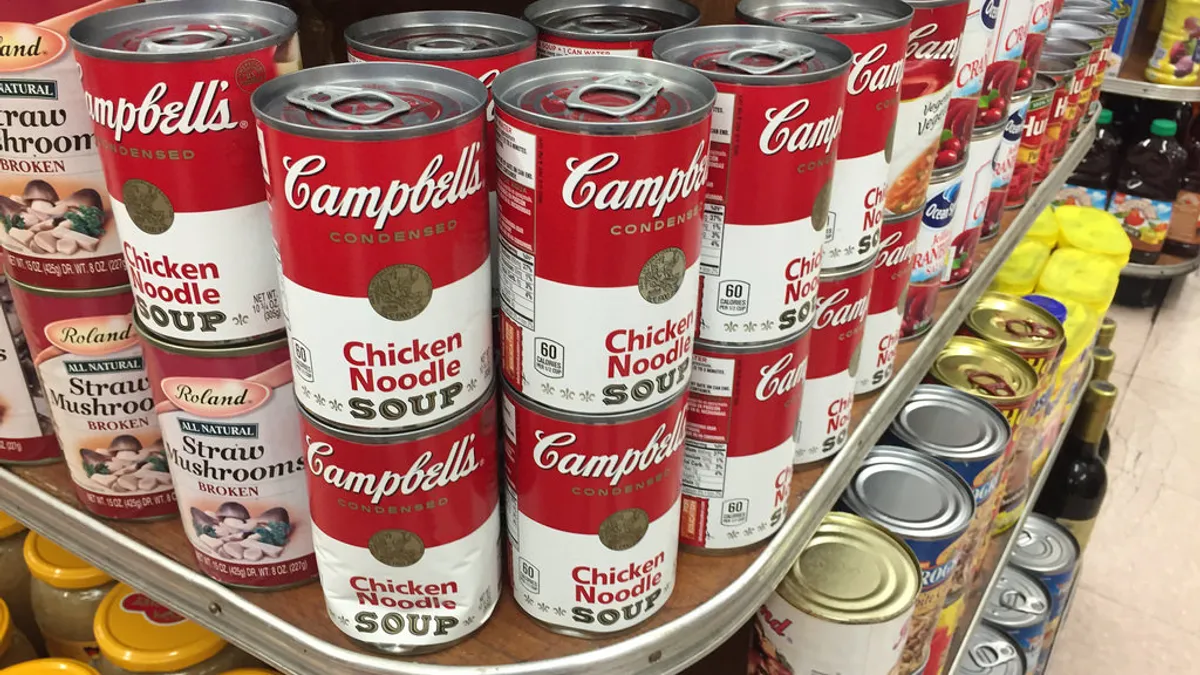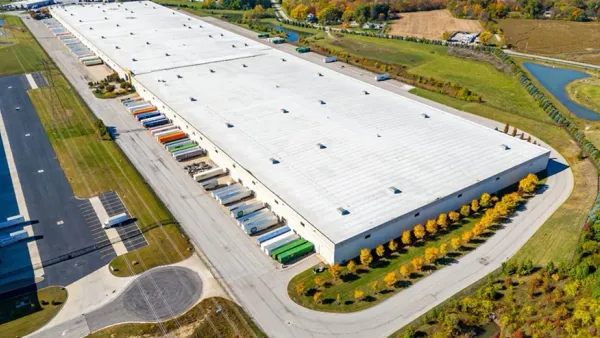Dive Brief:
- Campbell Soup Company will face supply constraints for another quarter, despite efforts to add production capacity to the fastest-selling product lines, executives said on the company's Thursday earnings call.
- Campbell's supply chain has ramped up its productivity at existing facilities during the pandemic — particularly in soup, which CEO Mark Clouse said would be largely caught up in time for "soup season." But other products are still behind. The company already added 20% more capacity to the Goldfish production lines at its Willard, Ohio, plant and is currently adding capacity for Cape Cod and Kettle chips, as well as Milano cookies.
- During the quarter ending Aug. 2, the company added back some SKUs it had temporarily stopped producing to focus execution on core products. And some products may not come back at all, Clouse said.
Dive Insight:
The pandemic is not hampering production capacity, but the continued elevated demand has not let up, even as the company scrambles to produce more, Clouse said. Soup sales in the most recent quarter were up 52% year over year (YoY).
"When I talk about supply chain challenges, these are not executional challenges," said Clouse. "This is not [COVID-19]-related impact. This is simply the sustained level of demand in certain businesses."
Consumer behavior is difficult to predict with the week to week changes to daily life the pandemic has wrought. Demand for snacks like Goldfish, for example, would usually concentrate in the small-format snack packs during the back-to-school season.
But larger packs are more in demand, so far with, so many kids distance learning from home. For supply chains, behavioral shifts like this make it more difficult to forecast demand and determine where production capacity should be directed.
Unpredictable demand is one of the main challenges for supply chains in 2020. According to a CalAmp and Reuters Events survey of 587 supply chain executives, 51% of shippers consider the lack of clarity on consumer demand to be the most significant kink in their supply chains during the pandemic.
Campbell CFO Mick Beekhuizen said he expects demand to start normalizing in the coming quarter, partially because of major pantry-loading coming to an end, but also because soup demand is historically elevated in the colder months. So, increased demand is part of the usual forecast.
The pandemic may not be directly affecting production capacity, according to Clouse, but it is elevating supply chain costs across the board, including labor spend, sanitation cost and some input price increases. Maxing out production capacity to meet the demand has offset those costs, however. And because demand in the final quarter of the calendar year will more closely follow traditional patterns, the CFO expects costs to fall more in line with normal expectations, as supply chain leadership will be able to more effectively plan the business.














